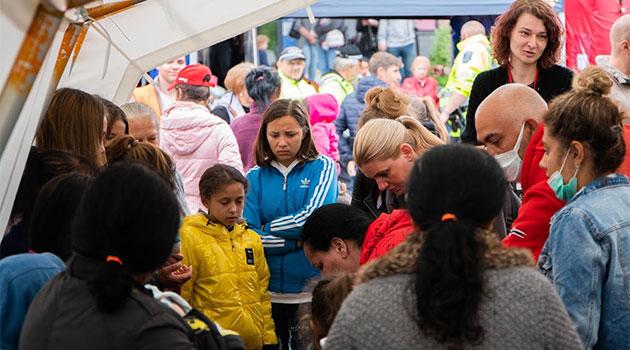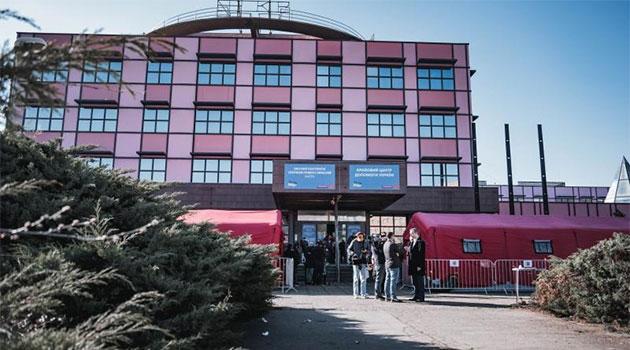Czech Regional Governors criticize plan to close Prague refugee reception center, Interior Minister claims he doesn't need Prague's aid

Some Regional Governors in the Czech Republic are criticizing the intention of Prague City Hall to close its center for refugees from Ukraine in the Vysočany quarter on 15 June, which the chair of the Association of Regions of the Czech Republic, South Bohemian Regional Governor Martin Kuba (Civic Democratic Party – ODS) has called a political gesture and a step that is uncollegial, while the Pardubice Region says it wants to close its own center for refugees if Prague goes through with the plan. Czech Interior Minister Vít Rakušan (Mayors and Independents – STAN) has said the Czech Republic can take care of the incoming refugees from Russia’s attack on Ukraine even if the center closes in Prague.
Rakušan regretted the decision of Mayor Hřib and, together with Czech Prime Minister Petr Fiala (ODS), said he is ready to meet with him to look for other ways forward. “However, even if the closure of the center eventually happens in Prague, we can handle the situation, we will not leave any refugees on the street,” the Interior Minister said.
If Prague fulfills its threat, the state is ready to offer aid to refugees through other assistance centers in the remaining 13 regions, he added. The Central Bohemian Region has announced that if necessary, it is ready to strengthen its capacity to handle refugees from Ukraine.
Regional Governor Martin Kuba: It’s a political game
According to the chair of the Association of Regions of the Czech Republic, the situation with the accommodation of refugees from Ukraine in Prague is similar to other regions’ situations, and he believes the capacities in both the capital and the regions for such purposes are still sufficient. “I consider [Hřib’s] statement relatively uncollegial towards the other regions and their governors,” Kuba said.
“I consider it so above all because yesterday [Tuesday] there was a meeting of all the regional governors and the Mayor of Prague with the Interior Minister where such information was never on the table,” Kuba said. The association chair described Hřib’s announcement as a political game.
“It seems to me that he wants to exaggerate the problem instead of handling it,” Kuba added. Regional Governor Martin Netolický (Czech Social Democratic Party – ČSSD) threatened to also close the Pardubice Region’s center for refugees from Ukraine.
“Receiving refugees from Ukraine and their registration at regional assistance centers is not an isolated matter of one or the other region, but a question of a comprehensive solution,” Netolický said before, like Kuba, describing the intentions of Prague as a step that is uncollegial. According to the Governor of the Hradec Králové Region, Martin Červíček (ODS), the announcement of the closure of the center in Prague for receiving refugees was irresponsible and has undermined confidence that the Czech Republic can manage the crisis of the refugees systematically.
Earlier this week, the Interior Minister told the daily Právo that an average of 1 000 Ukrainians arrive in the Czech Republic daily and the same number also leaves. For example, on Sunday, May 29, 1 768 refugees from Ukraine arrived, while 1 783 such persons left the country by train.
In the immediate aftermath of the attack by the Army of Russia on Ukraine at the end of February, the arrivals in the Czech Republic on a daily basis were in the thousands. According to the minister, about 300 000 refugees from Ukraine remain in the Czech Republic, which has granted temporary protection due to the war in Ukraine to 361 400 people.
Approximately 50 000 Ukrainians have left the Czech Republic since the start of the war. About half of those people, according to the Interior Minister, have returned to their homeland, while the rest headed to other countries.
More accurate data on how many refugees from Ukraine remain in the Czech Republic will be forthcoming when the state looks at the final enrolments into the schools for the fall. Yesterday the Government approved a bill that, in association with the influx of refugees from Ukraine, would facilitate the fast building of constructions to be temporarily used for education and housing.
